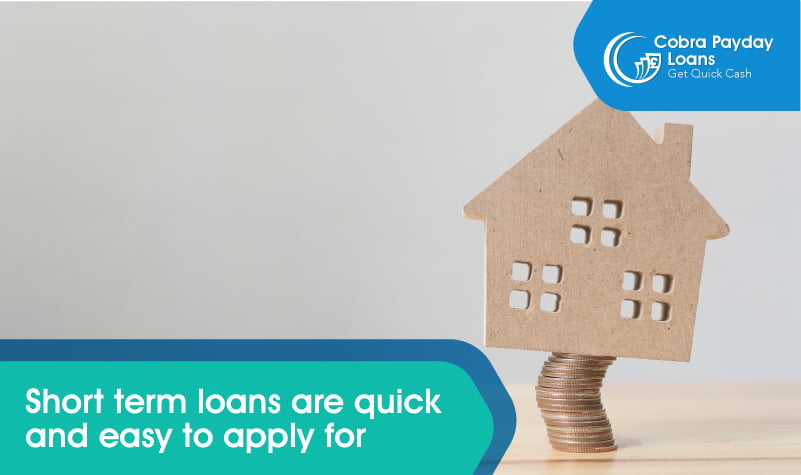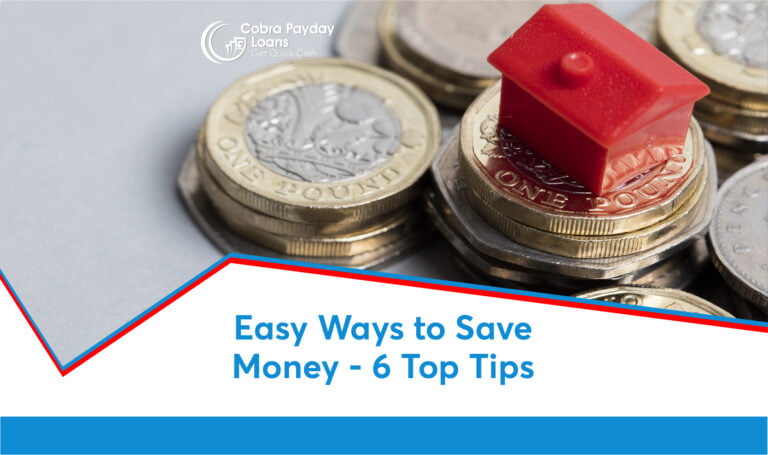If you have bad credit, it can be difficult to know where to turn if you need a loan. Sometimes there’s no way around it. You need to borrow money to get you out of a financial pinch – but where can you turn? Fortunately, if you have bad credit, you’re not alone, it’s an issue that affects a large number of people, so the financial industry has developed a series of options specifically catered to those with bad credit.
If your personal credit score is poor, don’t worry – there are always options open to you.
What Is Bad Credit?
As you go through your life, every financial decision you make impacts your “credit score”. The credit score is a snapshot of your financial situation and your financial history, used by all manner of financial institutions to decide on your application. Your credit score will be considered in everything from taking out a new phone contract to applying for a car loan or even trying to get a mortgage.
A “bad credit score” indicates that you have had a history of financial difficulties, making you a higher risk to lend to.
How Do You Get Bad Credit?
Bad credit can be the result of several different things. Mostly bad credit comes as a result of not paying your bills and debts on time. If you default on loans, they will affect your credit score. Home foreclosure, bankruptcy, car repossession, financial judgements against you – these types of things will all negatively affect your credit score and make it harder for you to get new loans.
It’s also worth considering that if you’re in a relationship and have joint finances, even your partner’s bad credit can begin to negatively affect yours – as your finances are now considered “one”, you take on the effects of their bad credit.
What Are Your Options for a Loan?
If you have a bad credit score, you can get a dedicated bad credit loan. This will be for a fixed amount, usually with relatively short repayment schedules, and likely at a higher interest rate than other loans. This isn’t your only option. However, there are many other options you can consider.
Short-term Loans
Short-term loans are similar to bad credit loans, in as much as they allow you to borrow a limited amount of money over a short period of time. However, the difference is that, unlike bad credit loans, you might be able to secure a more attractive interest rate. The amount you can borrow will be similar to a payday loan, but the repayments will be spread over a longer period, which will make them easier to manage.

The benefit of a short-term loan is they are relatively quick and easy to apply for, and the repayments are generally quite affordable. The drawback is that they can’t help you if you need to borrow a larger amount of money, as the borrowing limit is generally capped quite low.
Payday Loans
Payday loans are increasing in popularity as they offer a relatively simple way of getting money in the short term. You can generally borrow anywhere from £100 to £1000, and payments are spread over a few weeks or months. The idea of a payday loan is that it’s not such a major commitment as a regular loan, so they make more sense for those who need a cash injection to get them through a difficult time.
The benefits of payday loans are that they are plentiful – many lenders offer them, and they are generally straightforward to apply for. The downside, however, is similar to a short-term loan in that you can only borrow a fixed, and generally quite low, amount of money.
Line of Credit Loan
A line of credit loan works a little differently from a normal loan, in that you have the option to borrow a little at a time as and when you need it. So rather than getting £1000 into your bank account, you can borrow in small increments as you need to up to that £1000 limit. You can think of it as an unofficial overdraft, and you will be charged interest as soon as you start borrowing, with repayments set over a defined period.
The benefit of a line of credit loan is that it’s easier to work around your needs. You can borrow as and when you need to up to the pre-defined amount of your line of credit. The downside is that they can be more complex to keep track of than simply borrowing in one lump sum.
Guarantor Loans
A guarantor loan involves getting a friend or family member to “guarantee” the loan. You borrow the money, but it’s your guarantor who will be subject to penalties and payments if you default on the loan. The idea is that borrowers will be more committed to making their repayments on time if they know that they can make life difficult for someone close to them if they don’t keep up with those payments.

The benefits of guarantor loans are that you can use the better credit score of your guarantor to secure a larger loan amount on much more agreeable terms. The downside, of course, is that if you fail to make your repayments, you will be creating financial difficulty for your guarantor.
Logbook Loans
A logbook loan is a loan that’s secured against the value of an asset – in this case, your vehicle. Therefore, the amount you can borrow will depend on the value of your vehicle. No credit check is required for a logbook loan, usually because the maximum amount of the loan is capped against the value of your vehicle, so in the case of you defaulting on the loan, the lender knows they can take your vehicle as collateral and recoup their money.
As mentioned, the benefit of a logbook loan is that they require no credit check, so you can get one if you have bad credit. The downside is they’re capped to the value of your vehicle, and if you default on your payments, you will have your vehicle repossessed by the lender.
Personal Loans
A personal loan can afford you the ability to borrow a larger amount of money over a longer period of time, which means that generally, your monthly repayments are going to be more manageable. However, from a bad credit applicant’s point of view, the downside is that they generally have much stricter acceptance conditions, so making a successful application isn’t guaranteed. So if your credit is terrible, they won’t be an option.
The benefit of the personal loan is the amount of money you can borrow and the length of time you can borrow it for. The downside is that it will only be an option for those with slightly bad credit because the checks and requirements are stricter than other options.
Homeowner’s Loans
A homeowner loan is similar to a logbook loan in that it’s a loan taken against an asset – in this case, of course, your home. Therefore, the value of the loan you can take is quite high as it’s charged against a valuable asset. The issue is that comparatively few people own their homes, so a homeowner’s loan will not be an option for quite so many people. But for those who can take one, they can be perfect.
The benefit is, of course, the higher amount of money you can borrow if you need to. The drawback is that they won’t be an option unless you own your own home, and serious consideration must be given to the potential for repossession if you default on your loan repayments.
Think Twice About Guarantors
As you can see, there are many options available for different types of loans – even if you have bad credit. For example, a guarantor loan is an appealing prospect because you use the person’s comparatively better credit score, guaranteeing your loan to get a higher loan amount and more comfortable repayment options.
However, the difficulty is that if you have any problems repaying the loan, even due to circumstances beyond your control, it’s the person who is guaranteeing the loan that will be chased for it. They will have the risk of having judgements made against them, facing repossession of goods to cover costs, and maybe even encountering bad credit themselves. This means you have to thoroughly consider your options when thinking about applying for a guarantor loan.
What About Using Assets As Security?
We mentioned both logbook and homeowners loans as options for those with bad credit – and if you have bad credit, they can be perfect. Normally when you apply for a loan, the lender has to secure it against what they perceive is your likelihood of paying it back, so they always take some form of risk. However, with a loan against an asset like a car or your home, they don’t have any risk because the maximum value of the loan can always be recouped through repossession. This means there are generally no credit checks involved, as long as you can prove your ownership and achieve an independent valuation of the asset.
Don’t rush into a decision, however, because defaulting on your repayments is almost certainly going to result in repossession. In addition, if you are in financial difficulties, losing your vehicle or your place to live can make it even harder to resolve your issues, so you should always consider your options as thoroughly as possible.
Improving Your Credit
Something else you should consider alongside bad credit loans is improving your general credit score. Just because you have bad credit, it doesn’t mean it’s for life – quite the opposite, your credit score is fluid and is changing all the time. That means if you have bad credit now, you can take steps to improve it to access better loans.
Things you can do involve making “good” financial transactions – namely paying for things on time, paying your bills on time, taking action to have bad debt forgiven if it’s still outstanding, etc.
Choosing the Right Loan for You
If you have bad credit and need a loan now, you should think carefully about your options. This is because your credit score hangs in the balance – if you make a bad decision, you will have another loan to default on, your credit score will worsen, and depending on the loan you took, there might be further consequences such as the loss of a vehicle. If you make a good decision and pay your loan back on time, however, it will count positively towards your credit score and serve to improve it.

So consider your options very clearly. Before you begin shopping around for loans, you should make some very clear notes – make a note of the exact amount of money you need to borrow so you don’t get tempted by higher amounts than you actually need. Then you should take stock of your monthly budget and determine exactly how much you can afford to repay.
If you’re taking a loan with bad credit, it’s beyond essential that you meet your repayments, so make sure you know how much you can comfortably afford them to be before you even think about making any applications. Give yourself a little leeway, don’t borrow right up to the limit you can comfortably afford to account for unforeseen circumstances.
Making the Right Choice
If you have bad credit, there are loans out there for you to consider if you need them. If you go into them with your eyes open, with a full understanding of how much you need to borrow and how much you can afford to repay, you will be able to get the loan you need at agreeable terms.
No matter how bad your credit is, there are always options available for you if you’re willing to shop around for the best deal.
Blog




